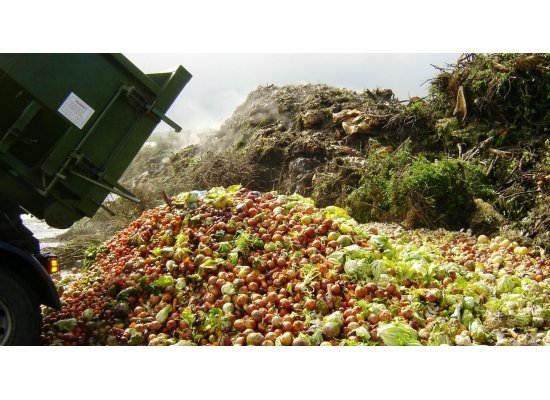Organic waste is a ubiquitous challenge in today's world, with far-reaching environmental implications. As we strive to manage our organic waste more efficiently, various methods and technologies have emerged. Among these, the black soldier fly (Hermetia illucens) has claimed the top spot on the organic waste recycle ladder. In this article, we explore why these remarkable insects are the champions of organic waste recycling.
The organic waste recycling ladder is a conceptual framework that categorizes different methods of handling organic waste based on their sustainability and environmental impact. This ladder consists of several tiers, with each step representing a more environmentally friendly and sustainable approach to organic waste management.
Landfilling and Incineration: The lowest rung of the ladder, these methods involve burying or burning organic waste, both of which have adverse environmental effects, including greenhouse gas emissions and soil contamination.

Composting: Composting is a better alternative, but it requires specific conditions and can be slow. Moreover, it may not be suitable for all types of organic waste.
Anaerobic Digestion: This process involves breaking down organic waste in the absence of oxygen, producing biogas and nutrient-rich digestate. While it is more efficient than composting, it has limitations.

Insect Bioconversion: At the top of the ladder is insect bioconversion, where black soldier fly larvae are the stars. This method offers several compelling advantages.

Rapid Consumption: Black soldier fly larvae are voracious eaters, capable of consuming large quantities of organic waste in a short time. They can process a wide range of materials, including food scraps, agricultural residues, and sewage sludge.
Efficient Conversion: The larvae efficiently convert organic waste into two valuable byproducts—high-protein insect biomass and nutrient-rich frass (excreta). The biomass can be used for animal feed, while the frass is an excellent organic fertilizer.

Reduced Greenhouse Gas Emissions: Unlike landfills and incineration, which release harmful greenhouse gases, insect bioconversion with black soldier flies results in minimal emissions, making it an eco-friendly choice.

Sustainable Animal Feed: The insect biomass produced by black soldier fly larvae is an ideal source of sustainable protein for livestock and aquaculture, reducing the need for resource-intensive alternatives like soy and fishmeal.

Circular Economy: Insect bioconversion aligns with the principles of a circular economy, promoting the efficient use of resources and reducing waste. It represents a closed-loop system where organic waste becomes a valuable resource.

Economic Opportunities: The black soldier fly industry offers economic potential, from waste management companies to insect-based product manufacturers. It fosters job creation and innovation.
Black soldier flies have rightfully claimed the top spot on the organic waste recycle ladder due to their remarkable abilities to efficiently convert organic waste into valuable resources while minimizing environmental harm. As the world grapples with mounting waste management challenges and the need for sustainable solutions, these tiny insects stand as champions in our quest for a greener, more eco-conscious future. By embracing black soldier fly bioconversion, we can accelerate our progress up the organic waste recycling ladder, reducing waste, conserving resources, and contributing to a more sustainable planet.
If you would like to book BSF industry keynote speaker Bob Holtermans for your event - https://www.insectengineers.com/about-us/speaker-bobholtermans
